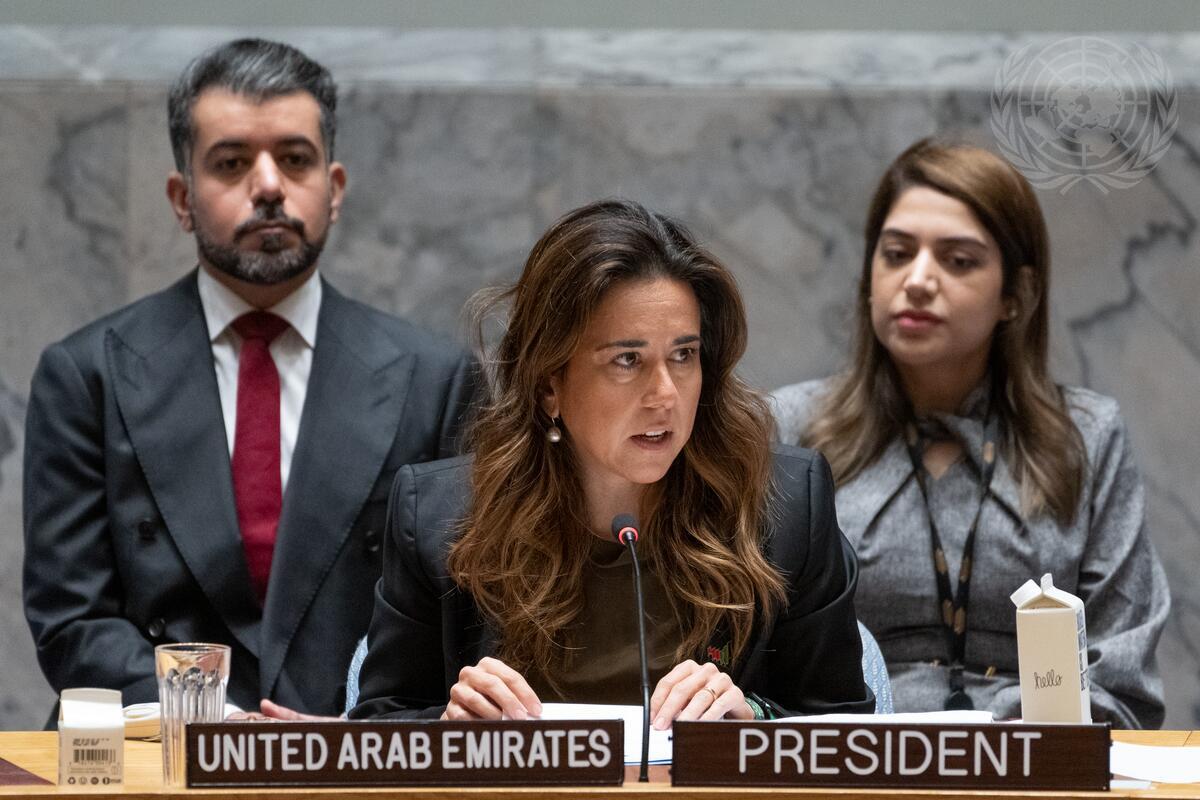In March last year, the Taliban imposed a ban on girls’ high school education before expanding it in December to include universities.
The United Arab Emirates is hosting a “comprehensive” United Nations meeting on Afghanistan on 21 June, Afghan media reported on Sunday.
Lana Nusseibeh, the UAE’s permanent representative to the UN and current president of the Security Council, made the announcement in New York.
“Our focus will be concentrated on Afghanistan’s situation, women’s rights in particular, over which all the members of the Security Council have agreed,” Nusseibeh told reporters.
The latest developments come weeks after UN Secretary-General Antonio Guterres hosted a meeting on Afghanistan in Doha in May, though that meeting did not include officials or representatives from the Taliban-led Afghan administration.
Last week, sources told Reuters that Qatar’s Prime Minister Sheikh Mohammed bin Abdulrahman Al Thani held private discussions with the Taliban’s supreme leader during his trip to Afghanistan.
Describing the meeting as a “diplomatic success” for Doha, sources said Sheikh Mohammed urged Haibatullah Akhunzada to ease tensions with the outside world.
The meeting in Kandahar was also believed to be the Taliban leader’s first such face-to-face contact with a high level foreign official.
Sheikh Mohammed, who also serves as Qatar’s foreign minister, also called on the Taliban official to lift restrictions on women’s employment and education, particularly the ban on working for UN and other humanitarian entities.
According to the source, Sheikh Mohammed also touched on the Taliban’s “continued efforts on the ground” to tackle terrorism, “an apparent reference to Kabul’s drive to crush an Islamic State affiliate,” the report added.
In March last year, the Taliban imposed a ban on high school education for girls before expanding it in December to include universities.
Meanwhile, the United States has increased pressure on the Taliban-led administration in response to human rights violations in Afghanistan.
Last week, several US Republican senators proposed the Taliban Sanctions Act, designed to tighten sanctions on the acting Afghan administration. The legislation would also press the Joe Biden administration to block transactions linked to the Taliban’s property.
UAE engagement in Afghanistan
Qatar has gained global recognition for its efforts in serving as a diplomatic bridge between Afghanistan and the rest of the world in recent years. Since the Taliban took control of Afghanistan in August 2021, Doha has become the new diplomatic home for a number of western missions forced out of Kabul.
However, the UAE has appeared to develop its influence in Afghanistan since the former Afghan leader Ashraf Ghani fled his home country in 2021.
Reports at the time said the runaway president left onboard a flight with bags of cash before shortly arriving in Abu Dhabi. Ghani’s son has also been in the UAE for enough years to build several companies and networks in the Gulf state.
The UAE and Saudi Arabia had previously recognised the Taliban government during its former control of Afghanistan between 1996 to 2001.
However, when Washington and the Taliban signed the “historic” February accords in 2020 in Doha, the news was met with immediate criticism by UAE officials. At the time, Qatar was subjected to an air, land and sea blockade by Saudi Arabia, the UAE, Bahrain, and Egypt.
At the time, Dubai-based professor of politics and former UAE government advisor, Abdulkhaleq Abdulla said the Doha Agreement should have been sponsored by another Gulf state and not Qatar.
In leaked emails from the UAE’s ambassador to the US, Yousef Al Otaiba revealed how his country was lobbying Washington to establish the Taliban’s political office in the Emirates itself.
Despite the UAE previously labelling the group as “terrorists” and describing Qatar’s engagement with the group as problematic, analysts have since pointed to its efforts in scrambling for a way to further consolidate influence in Kabul.
This was highlighted in May 2022 when Abu Dhabi was quick to sign an agreement with the interim Afghan government over airport operations in Kabul without conditions.







